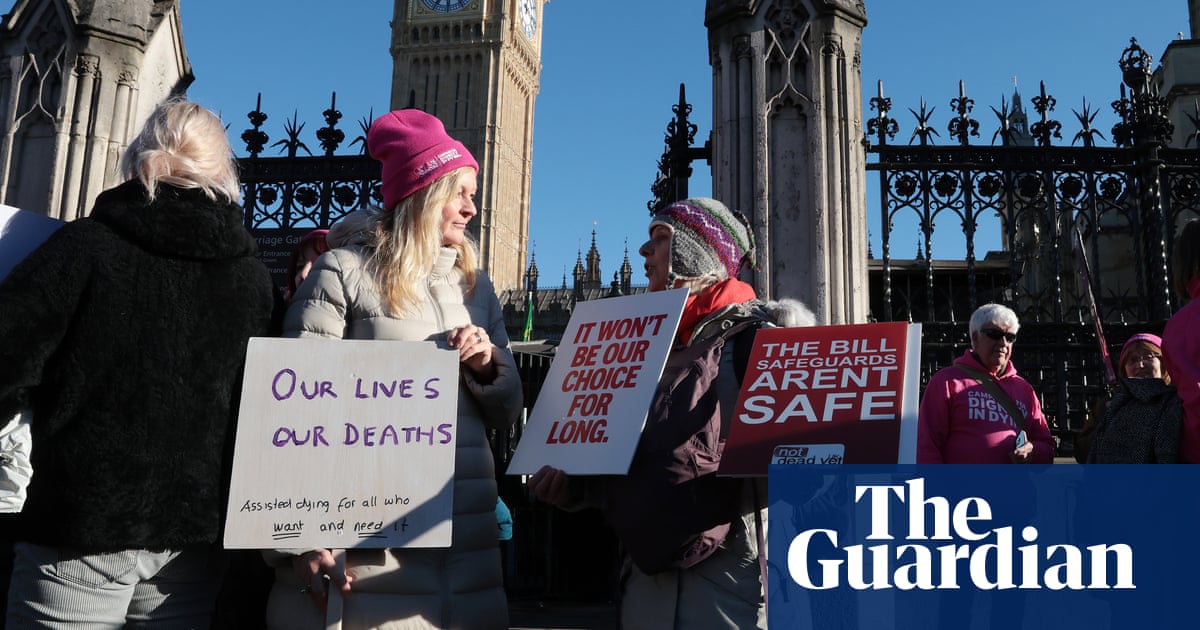The Royal College of Psychiatrists (RCPsych) has voiced its opposition to the assisted dying bill inEnglandand Wales over “many, many factors”.
The college says it is neutral on the principle of assisted dying but it has listednine substantial reasonsit cannot back the bill – which returns to parliament on Friday – in its current form.
The move is significant because under the bill’s current stipulations a panel including a psychiatrist would oversee assisted dying cases.
Speaking to BBC Radio 4’s Today programme, Dr Trudi Seneviratne, registrar at the RCPysch, said: “There would be many, many factors in the bill as it stands that would need to be addressed.”
The college’s warning comes days before a Commons debate on Friday of amendments to Kim Leadbeater’s bill, with at least five MPs who previously abstained on the issuedeciding to vote against it.
Asked if the college’s neutral stance was a pretence and that it was opposed to the idea of assisted dying, Seneviratne said: “That’s not the case. We have up to nine points that we want MPs to consider.”
She claimed the bill relegated the role of psychiatrists to doing a “tick-box exercise” on whether doctors’ conclusions about patients were correct. Seneviratne said: “That can’t be the role of psychiatrists.”
She also said there were not enough consultant psychiatrists to do what the bill required at a time of increasing mental health problems. “The workforce simply isn’t there. There’s a huge increase in mental disorder across the board – we don’t have enough [psychiatrists].”
The RCPsych said its main issues with the bill was that it failed to consider the unmet needs of terminally ill people and the possibility of treatment for depression. Seneviratne said: “When someone has a terminal illness they may well develop a depression, a mental disorder, and that may lead to feeling suicidal. But actually, if you treat the depression, that suicidality might lift.”
Dr Lade Smith, president of the RCPsych, added: “It’s integral to a psychiatrist’s role to consider how people’s unmet needs affect their desire to live. The bill, as proposed, does not honour this role, or require other clinicians involved in the process to consider whether someone’s decision to die might change with better support.
“We are urging MPs to look again at our concerns for this once-in-a-generation bill and prevent inadequate assisted dying/assisted suicide proposals from becoming law.”
Sign up toHeadlines UK
Get the day’s headlines and highlights emailed direct to you every morning
after newsletter promotion
The college said the physical effects of a mental disorder, such as anorexia or dementia, should not make a person eligible for assisted dying.
Dr Annabel Price, who is leading RCPsych’s work on the bill, said: “The college has spent decades focused on preventing people from dying by suicide. A significant part of our engagement on this bill to date has been to point out that people with terminal physical illnesses are more likely to have depression.
“Terminal illness is a risk factor for suicide, and unmet needs can make a person’s life feel unbearable. But we know that if a person’s situation is improved or their symptoms treated, then their wish to end their life sooner often changes.
“The bill does not specify whether assisted dying/assisted suicide is a treatment option – an ambiguity that has major implications in law.”
In the UK and Ireland,Samaritanscan be contacted on freephone 116 123, or emailjo@samaritans.orgorjo@samaritans.ie. In the US, you can call or text theNational Suicide Prevention Lifelineon 988, chat on988lifeline.org, ortext HOMEto 741741 to connect with a crisis counselor. In Australia, the crisis support serviceLifelineis 13 11 14. Other international helplines can be found atbefrienders.org
